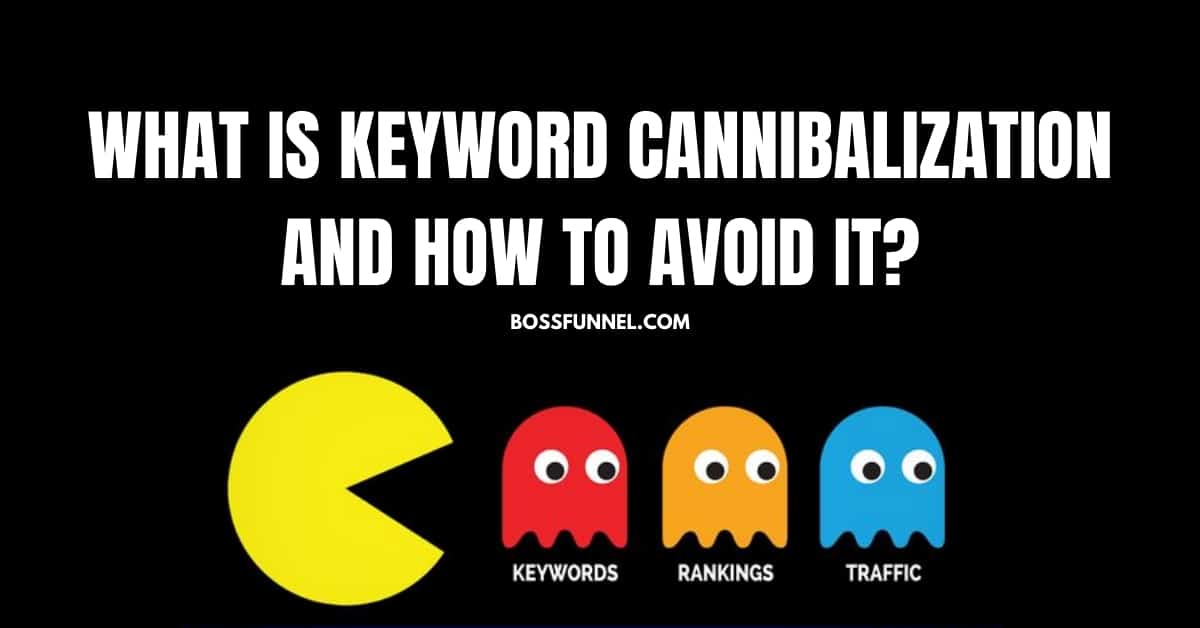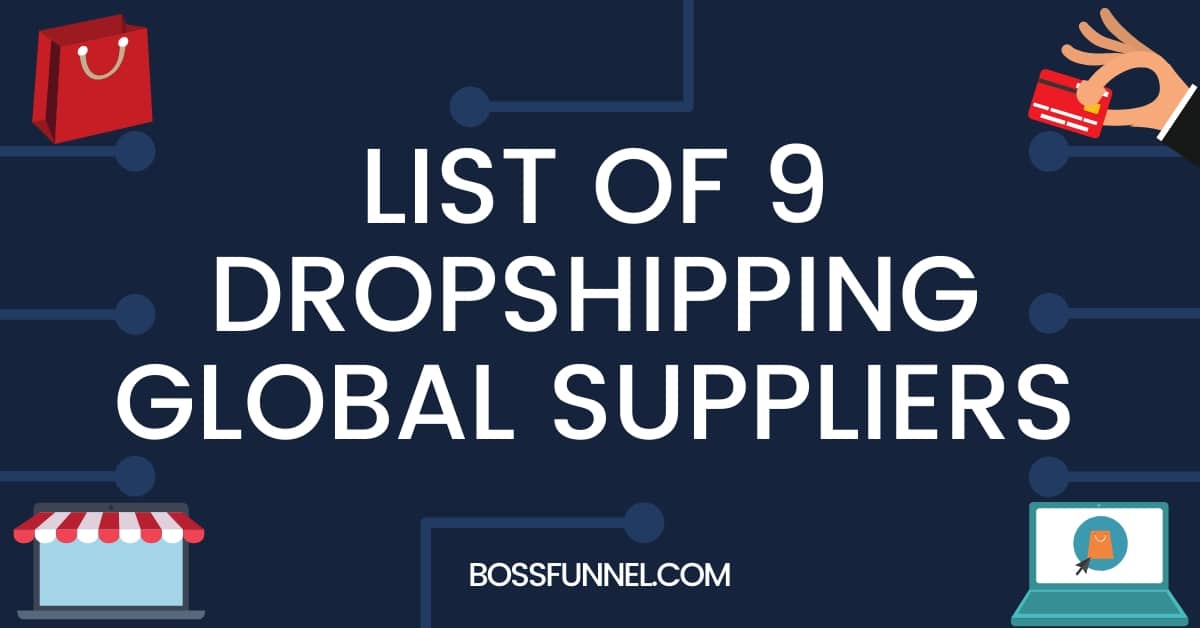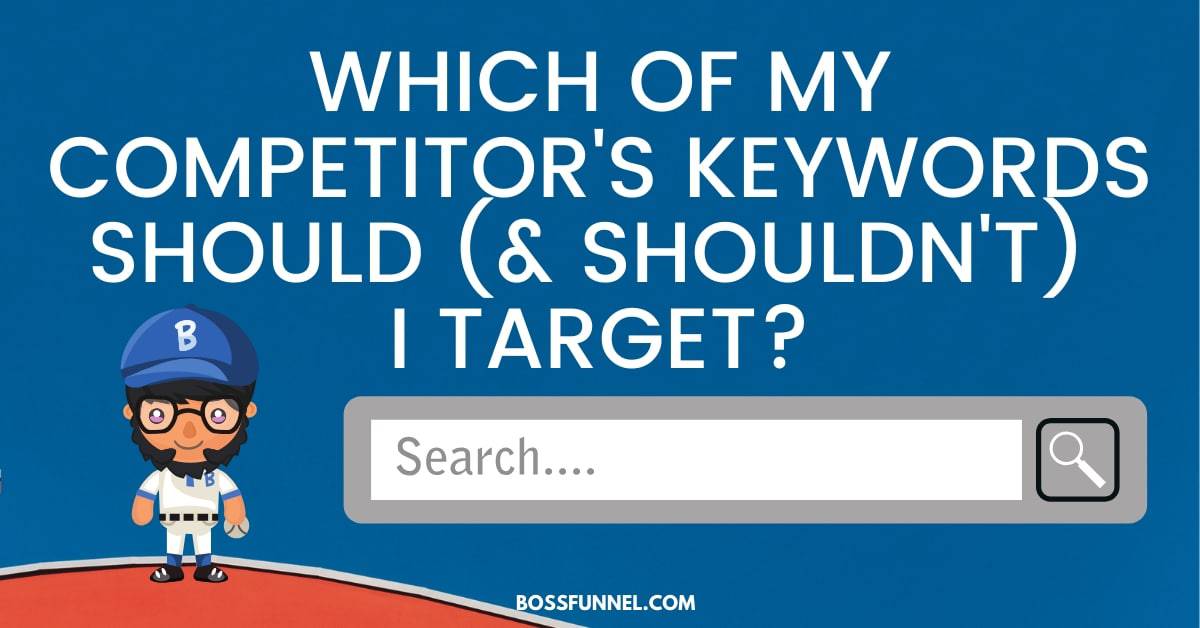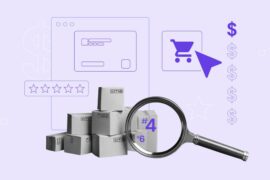The cannibalization of keywords is what happens when different pages on your site are targeted for the same keyword.
When more than one page targets one specific keyword, you end up competing with yourself. You absorb or cannibalize, your own traffic with these pages. As a result, each of them has less impact, views, and even conversions than if you had only one landing page.
Content Cannibalization
To put this in simple words, keyword cannibalization is the separation of clickthrough rate (CTR), links, and conversion between two pages, which must either be combined with each other or have different keywords.
An example; a site that sells hats, on which there are two pages with the keyword “baseball caps.”
These can be two pages that offer the same information and content – in this case, they need to be combined into one page so that all the information can be found in one place.

Two different pages with two different URLs, but with the same title tag and the same content on them. This is the cannibalization of keywords.
It is also possible that these pages are targeted for various key queries, for example, “baseball caps with the logo of sports teams” and “designer baseball caps” – in this case, the text on the page should be edited to reflect the fact that these are two different sets products offering different things.
Although it might seem that getting into two search results is good, you would rather prefer to be in third place once than twice – in seventh and eighth.
If you need to rank two different pages in a search, the clickthrough rate can be improved by using more specific keywords, as a result of which users are more likely to see your content and less likely to be on the wrong page.
Why is Appearing Twice in Search Results is Bad?
If two different pages are ranked in a search using the same keyword, then this is what happens:
1. You Harm the Hierarchy and Quality Score of your Web Pages
When you are ranking two different keywords using the same search keyword, you are indirectly forcing your webpages to compete against each other. In simple words, each keyword is fighting with the other for views, instead of becoming one highly relevant page together, they are two different and medium-relevant pages. Another adverse effect of this would be, that you are directly telling Google that your site lacks quality content and that your relevant target may not be relevant at all. Thus hurting your priority in the search results.
You can also read: WordPress Website Optimization for Google PageSpeed Insights
2. Google may Discount the More Relevant Page
Google does everything possible to understand what is contained on each page of your site, but if you have several pages targeted by the same keywords – there is a high chance that the search engine will decide that the most important page is the least relevant and reduce the importance others.
3. Backlinks Disorient
Instead of making many links to one good source of information, you are scattering your efforts on many pages. Your internal links also probably direct people in different directions for the same information.
4. Your Conversion Rate Suffers
It is unlikely that all of your pages convert the same way. One will have a higher conversion rate, but not all new users will be directed to this page, but rather divided between several. Make sure that new leads are sent to the most relevant page possible – the one that is most optimized for targeted actions. This will also reduce the bounce rate, as users will be more satisfied with the found webpage, which will increase its ranking.
How to Avoid Cannibalizing Keywords?
The easiest way to monitor your site and make sure that you are not cannibalizing your own content is to create a table with a list of your URLs and related keywords.
Any good keyword strategy should start with research and planning — selecting the right keywords based on long, low-competitive queries, wherever possible. Make your content, it’s headings, their meta tags optimized for the search results. If you are not sure how well your search pages are optimized, website SEO tools like Sitechecker can help you understand the current state and find out what can be improved. You can also read: 7 Step Ultimate Checklist for Every New Ecommerce Store
Trying to create a well-structured table with URLs and their corresponding keywords. Now check if there are any duplicate entries. If there are any, then consolidate the content, where possible, and select other keywords for those pages to which such consolidation is not applicable.
Let’s discuss the best 5 steps to avoid keyword cannibalization in detail.
1. Revamp your Site’s Structure
This is one of the easiest and the most optimized way to remove keyword cannibalization on your website. All you need to do is, compare the two similar URLs, find the most authoritative page and turn it into a one-combined landing page. Now link the main authority page to other unique keywords with descriptive.
If we go back to our baseball cap example, it may make sense to make branded baseball caps a canonical home page and link more specific options to it.
2. Create new High Authority Landing pages
Or vice versa, you may miss pages that combine similar product pages in one place.
In this case, you need to create separate landing pages for high-authority keywords and then link each high-authority landing page to other sub-options. This will not only improve the overall structure of your website, but it will help in increasing search engine rankings as well.
3. Merging Your content
Consider combining your pages into one, find the pages with non-unique content and with similar keywords, then combine the pages turning into a long high-quality page with an effective focus keyword. You can also read: 9 Golden SEO Copywriting Rules: Untold Secrets
4. Find New keywords
Find a good focus keyword that can help you merge the two separate pages. It’s better to research a good keyword and compile one single page rather than having two or three multiple pages with poor keyword strategy. It’s a hard time you find new keywords.
Just make sure your keywords accurately describe the content of your page.
5. Use a 301 redirect
Another easier solution would be to create a 301 redirect if you have the same keywords ranking for multiple pages you can simply re-direct them.
Using a 301 redirect allows you to merge your keyword cannibalized content, linking all the less important pages with one to a more authoritative version. If you combine two or more web pages, make sure that the redirect from the old pages to the new ones works correctly so as not to lose trackbacks to the original content.
Keep in mind that this tactic is only suitable for pages with similar content and those that match specific keyword searches.
Conclusion
These are the 5 best ways you can avoid or fix keyword cannibalization for your website. Keyword Cannibalization is very common with eCommerce stores, so if you own an eCommerce store and you are using a content management system (CMS), you need to a keep a good check on each of your product pages, including the product variants. Some CMS tend to create separate pages for the different variations of your products, thus you need to make sure you are not cannibalizing your keywords. You can also read: On-page SEO tips for eCommerce Store Owners
If your CMS organizes separate product pages for different variation you should limit the indexing of such cases, this can be achieved by creating separate entries in your robots.txt file (How to Stop Search Engines from Crawling your Website) or,
<meta name = ”robots” content = ”noindex”> tags or tell the search robot which version of your page it needs to index using tag “rel = canonical”.
<link rel = ”canonical” href = ”// www.example.com/mymainpage” />
(replace the specified URL with the address of your site and the name of the control page)
This is much more effective than a standard redirect, which often leads to the common problem of looping the redirect mechanism.
Return to the Previous Level
Keyword cannibalization can create serious problems, but they are easy enough to solve. A regular SEO audit is critical for any site, as well as accurate strategies for keywords and content.
In addition to solving existing problems with cannibalizing keywords, you need to check that the pages you create do not compete with existing ones. New content should primarily fill in the gaps, and not compete with itself for keywords.









